‘In Portugal, every half hour at least one person dies from smoking’
Despite restrictions imposed in recent years, the prevalence of tobacco consumption in Portugal increased from 48% to 51% and that of alcohol consumption from 49% to 56% in the past five years, according to the 5th National Survey on Psychoactive Substance Use in the General population.

Tobacco is the second most widespread psychoactive substance (after alcohol), with about half of the adult population declaring to have smoked at some point in their lives. However, the good news is, that young adults between 15 and 35 don’t seem to be keeping up with the upward trend. In this age group tobacco consumption fell from 37 to 28%, and in girls even to 20%.

More than 80% of the Portuguese consider themselves exposed to tobacco smoke outdoors, a percentage that places Portugal among the EU countries with the highest level of exposure, according to a study by the University of Beira.

These figures come at a time when the government has approved a proposal to amend the Tobacco Law, equating heated tobacco with conventional tobacco, limiting the points of sale and places where smoking is permitted, banning smoking on hospital and school grounds, outside cafés and restaurants and on covered terraces.

‘Our tobacco law proposal is not prohibitionist’, declared Margarida Tavares, State Secretary for Health in Parliament. ‘What we want is to regulate and help those who want to quit smoking.’ Unfortunately, the definitive elimination of smoking will – according to the proposed law – only come into force in 2030! ‘We’ll give business time to adapt’, she said.

Contrary to a decrease in smoking, alcohol consumption is rising in youngsters. Nine out of ten 18-year-olds say they have taken alcohol in the 12 months prior to a survey carried out by the Addictive Behaviour and Addiction Intervention Service (SICAD). For the first time consumption among girls surpassed that of boys.

Although the prevalence of binge drinking (rapid and excessive consumption of alcoholic beverages to reach drunkenness at least once in the last year), has remained stable (around 10% in the general population), more than one-third of the 18-year-olds admitted to having drunk alcohol in a ‘binge’ way in the past 12 months.

Furthermore, the survey points to an significant increase in dependent alcohol consumption (from 2% to 3.5%) in the past five years. ‘We must detect these patients and treat them,’ said Joana Teixeira, a psychiatrist at Lisbon Psychiatric Hospital, to avoid an increase in diseases attributable to alcohol, such as liver cirrhosis, vascular diseases, and certain types of cancer (i.e. breast cancer in women).

But despite the increase in alcoholic consumption, the government maintains its resistance against public health warnings on the labels of alcoholic beverage bottles just like the Republic of Ireland has done. According to the Ministry, such warnings are ‘incompatible’ with EU regulations and against the interest of the national wine sector, since the export of Portuguese wine is worth almost one billion euros per year.
Enjoy your week Aproveite a semana (pic Público/Sapo)

 In 2001 Portugal became – under the leadership of prime minister António Guterres, nowadays UN’s Secretary-General – the first country to ‘
In 2001 Portugal became – under the leadership of prime minister António Guterres, nowadays UN’s Secretary-General – the first country to ‘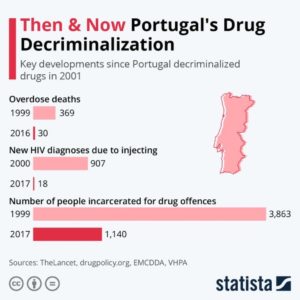 Despite predictions at the time of an increase in drug use and drug tourism by opponents of decriminalization, the opposite happened with huge drops in drug use, overdose deaths, drug-related crime, and HIV infection. New cases of
Despite predictions at the time of an increase in drug use and drug tourism by opponents of decriminalization, the opposite happened with huge drops in drug use, overdose deaths, drug-related crime, and HIV infection. New cases of  The country’s
The country’s  What did and what did the country not do?
What did and what did the country not do? There are currently two Threshold Mobile Units in Lisbon – attending approximately 1,200 people a day – and 170 recovery facilities in a country of 10 million people for treatment and education about the harmful effects of drugs.
There are currently two Threshold Mobile Units in Lisbon – attending approximately 1,200 people a day – and 170 recovery facilities in a country of 10 million people for treatment and education about the harmful effects of drugs.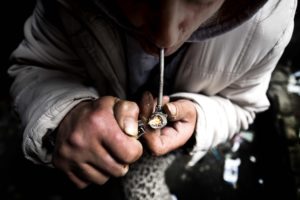 While other states have developed various forms of de facto decriminalization – whereby substances perceived to be less harmful (such as cannabis) rarely lead to criminal prosecution – Portugal remains the only EU member state with a law explicitly declaring drugs to be ‘decriminalized.’
While other states have developed various forms of de facto decriminalization – whereby substances perceived to be less harmful (such as cannabis) rarely lead to criminal prosecution – Portugal remains the only EU member state with a law explicitly declaring drugs to be ‘decriminalized.’
 What does this mean for the health of the Portuguese? Excessive alcohol intake is associated with road traffic accidents, cancer, diabetes, heart disease, domestic violence, and suicide attempts.
What does this mean for the health of the Portuguese? Excessive alcohol intake is associated with road traffic accidents, cancer, diabetes, heart disease, domestic violence, and suicide attempts.
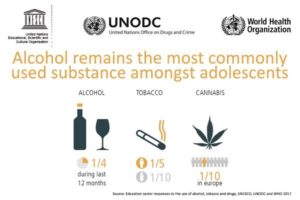
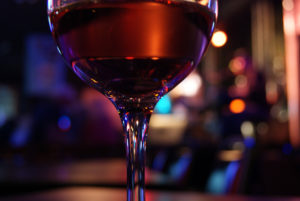 Given the fact that there is no
Given the fact that there is no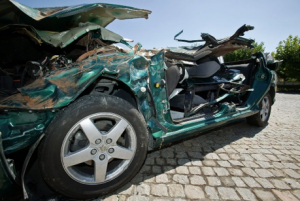 Behalve dat alcohol, vooral bij overmatig drankgebruik, schadelijk is voor de gezondheid – hersenen en andere organen, zoals de lever kunnen worden aantast – is rijden onder invloed een veel voorkomend probleem in Portugal.
Behalve dat alcohol, vooral bij overmatig drankgebruik, schadelijk is voor de gezondheid – hersenen en andere organen, zoals de lever kunnen worden aantast – is rijden onder invloed een veel voorkomend probleem in Portugal.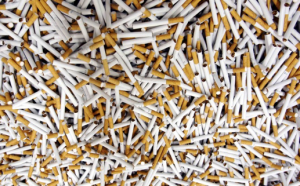 Of je nu veel of weinig rookt en of je er nu zelf een opsteekt of passief meerookt, roken is altijd slecht voor de gezondheid. In Portugal rookt een op de vijf ( dat zijn 2 miljoen) mensen boven de 15 jaar en is roken de belangrijkste doodsoorzaak.
Of je nu veel of weinig rookt en of je er nu zelf een opsteekt of passief meerookt, roken is altijd slecht voor de gezondheid. In Portugal rookt een op de vijf ( dat zijn 2 miljoen) mensen boven de 15 jaar en is roken de belangrijkste doodsoorzaak.